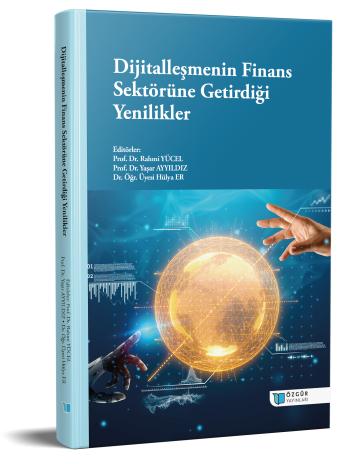
Türkiye ve Seçili Ülkelerde Dijital Hizmet Vergisi Uygulama ve Hasılatlarının Değerlendirilmesi
Şu kitabın bölümü:
Yücel,
R.
&
Ayyıldız,
Y.
&
Er,
H.
(eds.)
2023.
Dijitalleşmenin Finans Sektörüne Getirdiği Yenilikler.
Özet
Günümüz ekonomilerinde mevcut uluslararası vergilendirme kuralları, dijital hizmet sunan çokuluslu şirketlerin vergilendirilmesinde yetersiz kalmaktadır. Bu durum ülkelerin vergi kayıpları yanında vergileme adaleti ve rekabet şartlarının düzenlenmesi bakımından önem taşımaktadır. Bu nedenle son birkaç yılda çok sayıda ülke Dijital Hizmetler Vergisi’ni (DHV) gündemlerine ve vergi mevzuatlarına almakla yüzleşmek durumunda kalmıştır. Bu çalışma, dijital hizmetlerin vergilendirilmesi konusunda dünyada yaşanan gelişmeleri tespit etmeyi ve DHV ülke uygulama ve önerilerini değerlendirmeyi, bu yeni verginin Hazineye katkısını tespit etmeyi amaçlamaktadır. Bu kapsamda çalışmada DHV uygulayan ülke örnekleri incelenmiş, uygulama farklılıkları ortaya konulmuş ve DHV’nin vergi hasılatına katkıları hesaplanmıştır. Çalışma sonucunda, DHV uygulamasına geçen ülkeler bakımından vergi oranı, vergi konusu ve kapsamı ile vergileme eşiği gibi hususlarda ülkelerin siyasi-ekonomik yapısı gereği farklılıklar bulunduğu, DHV’nin yürürlüğe girdiği 14 ülkede verginin ortalama oranının %3,8 düzeyinde olduğu, incelenen ülkelerde verginin toplam vergi tahsilatına ortalama %0,1 ve en yüksek %0,26 düzeyinde bir katkı yaptığı tespit edilmiştir. Bu alandaki vergisel sorunların en doğru çözümünün, ulusal çabalardan ziyade OECD nezdinde uluslararası vergileme kurallarının oluşturulması olduğu görülmüştür.

